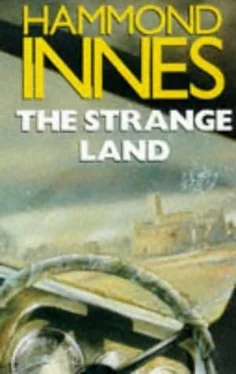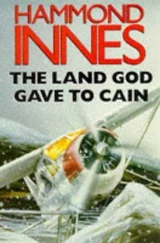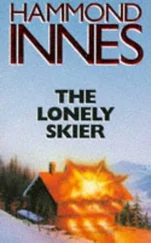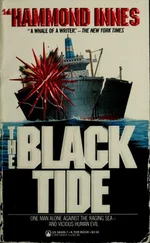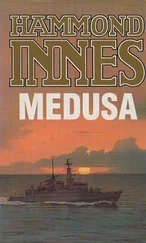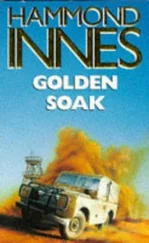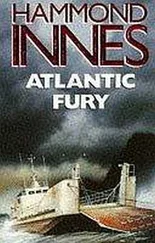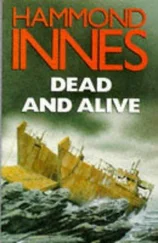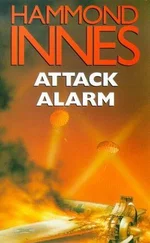Hammond Innes - The Strange Land
Здесь есть возможность читать онлайн «Hammond Innes - The Strange Land» весь текст электронной книги совершенно бесплатно (целиком полную версию без сокращений). В некоторых случаях можно слушать аудио, скачать через торрент в формате fb2 и присутствует краткое содержание. Жанр: Прочие приключения, на английском языке. Описание произведения, (предисловие) а так же отзывы посетителей доступны на портале библиотеки ЛибКат.
- Название:The Strange Land
- Автор:
- Жанр:
- Год:неизвестен
- ISBN:нет данных
- Рейтинг книги:4 / 5. Голосов: 1
-
Избранное:Добавить в избранное
- Отзывы:
-
Ваша оценка:
- 80
- 1
- 2
- 3
- 4
- 5
The Strange Land: краткое содержание, описание и аннотация
Предлагаем к чтению аннотацию, описание, краткое содержание или предисловие (зависит от того, что написал сам автор книги «The Strange Land»). Если вы не нашли необходимую информацию о книге — напишите в комментариях, мы постараемся отыскать её.
The Strange Land — читать онлайн бесплатно полную книгу (весь текст) целиком
Ниже представлен текст книги, разбитый по страницам. Система сохранения места последней прочитанной страницы, позволяет с удобством читать онлайн бесплатно книгу «The Strange Land», без необходимости каждый раз заново искать на чём Вы остановились. Поставьте закладку, и сможете в любой момент перейти на страницу, на которой закончили чтение.
Интервал:
Закладка:
I turned, surprised that we were, in fact, outside the kasbah. For a moment the carbide flares lit the passageway and the swarthy, aquiline faces of our escorts, framed in the cowls of their djellabas. They were outlined for an instant, motionless like a tableau, and then the door thudded to and we were alone. It was only then, whilst the wooden securing bar was being dropped into place, that I realised we had been shown out without our guide.
Jan had noticed it, too. ‘Where’s Moha?’ he asked. His voice was a hoarse whisper. ‘Do you think…’ He didn’t finish the sentence, but I saw his hand reach into his breast pocket to make sure he still had the deeds there. ‘Do you remember the way back?’ he asked.
‘I think I can find it,’ I said. We had started to walk across the courtyard. We reached the archway and there ahead of us was the dark, towering shape of Ksar Foum-Skhira. There was no singing now. The village seemed as quiet as the grave. We came to the first of the wells and then we were under the shadow of the walls.
We stopped there as though by mutual consent and stood listening. There was no breath of wind and in the stillness my ears picked up small sounds — the grunt of a camel, the cry of a child; sounds that were innocent and yet, because they were not of our own world, disconcerting. ‘Do we have to go back through the palmerie?’ Jan said. ‘Couldn’t we cut across the Post and get on to the piste?’
The thought had been in my own mind, too. We both of us felt the need for open country round us. ‘All right,’ I said and we turned back, skirting the walls of Ksar Foum-Skhira, moving slowly, feeling our way in the darkness. Once we stumbled into a caravan of hobbled camels who champed and belched in the darkness, shifting their positions with nervous grunts.
We were on the south side of the village now and the going was slow, for we were in an area of intense cultivation and all the ground was criss-crossed with small earthworks about a foot high to retain the water when the irrigation ditches were allowed to flood. The palms thinned out and we were suddenly in soft sand. Here the desert had moved in on the palmerie, killing the trees and half burying them in steep dunes. We were a long time getting through the dunes, but at last we came out on to hard, flat desert and there, straight ahead of us, were the walls of the ruined souk.
After that we had no difficulty in finding the piste. We struck away from it to the right, making straight for Kasbah Foum, taking our bearing from the shape of the mountains hunched against the stars. The going was rough and uneven and we stumbled repeatedly over stones or fought our way through patches of dry, brittle scrub. It seemed a long time before we saw the faint glimmer of light that marked the position of the camp. We made steadily towards it and gradually the light separated into two lights and we could see the shape of the bus and, beyond it, the tents.
We couldn’t have been more than two or three hundred yards away, when there was a sudden cry — a yell that rose to a scream; high-pitched, sudden and frightening. It was cut off abruptly. I checked at the sound of it and in the same instant the headlights of the bus were switched on. They cut a great swath through the desert night and figures leapt to view, a huddle of Berber men bending over something on the sand of the piste. They straightened up and stood like frozen figures caught in some fearful act that should have remained cloaked by the night.
The horn began to blare then and they broke and ran. I was running, too, now. I shouted something — something in English. I caught a glimpse of White peering out of his tent. There was a stab of flame and the crack of a gun. Then he started to run. We were all running — running towards a still body that lay in a tight bundle on the piste. By the time I reached it, the man’s assailants — three or four of them — had vanished into the darkness that lay outside the beam of the headlights.
The body lying on the piste was alive. I saw that at a glance. The man was breathing heavily, his heaving chest thrusting the air out in great gasping sobs. But there was blood on the sand. ‘I didn’t hit him,’ Ed White panted. ‘I fired over their heads to scare them.’
‘Of course,’ I said and turned the man over.
It was our missing guide — Moha. There was a cut above his right eye that extended across his forehead and into his hair. It looked as though a stone had hit him. But down by his waist his djellaba had been ripped open with a knife and there was more blood. Jan thrust me aside, tearing the djellaba apart to expose the torn flesh of the man’s buttocks. He examined the wound quickly and then nodded and said, ‘He’s all right. Just a flesh wound.’ He sat back on his haunches, staring at the inert body. The man was still panting as though he had just flopped down after winning a race. ‘Why did they attack him?’ he asked, twisting his head round and looking up at me.
‘I don’t know,’ I said. ‘We’d better get him up to the camp.’
As we lifted him up, I saw he had something tightly clutched in his right hand. It was a roll of paper. I prised the fingers from their grip on it and then we carried him to the larger of the two tents, where we laid him on one of the camp beds. Julie joined us there, carrying a bowl of water and some bandages. Whilst she set to work to bathe the man’s wounds, I took the crumpled paper over to the pressure lamp. It was written in Arabic, the writing thin and shaky, but recognisably the same as the writing on the deeds of Kasbah Foum. It was signed Caid El-Hassan d’Es-Skhira.
I touched Jan on the shoulder as he bent over the knife wound in Moha’s body. ‘Here’s the answer to your question,’ I said. ‘He was attacked because he was bringing you this.’
‘What is it?’
‘Confirmation of your title to Kasbah Foum.’
‘But I thought the Caid — ‘ He almost snatched the paper from me and stood staring down at the writing.
‘Does this mean Kasbah Foum belongs to me?’ he asked, and he held the paper out to me so that I could read it.
‘Yes,’ I said, peering over his shoulder. ‘The letter states quite clearly that the Caid agrees to Duprez’s choice of a successor to the title and requests the authorities to make the necessary registration. It further states that so long as you live, neither he nor any member of his family shall have any interest in the property.’ I hesitated.
‘What is it?’ he asked quickly.
‘He doesn’t mention your name anywhere. He simply refers to you as “the bearer of the deeds”.’
‘Probably he couldn’t remember my name.’ He was holding the paper tightly in his hand as though afraid it might vanish. ‘Does it make any difference, do you think?’
‘I don’t imagine so. You have the deeds and you have his letter confirming the title. It should be all right.’
He shook his head slowly. ‘I don’t understand, Philip. I never thought he’d agree to it so quickly. I thought he’d want to talk to Legard and make some enquiries … What do you think made him do it in such a hurry?’
The man on the camp bed groaned and moved. I turned and saw that he had recovered consciousness. ‘Maybe that’s your answer,’ I said. ‘The old man knows his son only too well.’
There was a movement in the entrance to the tent. It was the goat boy from the old Kasbah, Moha’s son. He stood there with wide, shocked eyes, staring at his father. Then he looked at us and there was anger and fear on his small, immature features. It was best that the boy knew the truth of it and I asked his father what happened.
Apparently Moha had received a message from the Caid to attend him in his room. He had found him alone on his couch writing a letter. This he had handed to Moha with instructions that it should be delivered to us with all possible speed. He had left with it at once, but, as he came through the palmerie, he realised that he was being followed. He was past his village then and all he could do was run on in the hope of reaching our camp before his pursuers caught up with him. He had almost made it.
Читать дальшеИнтервал:
Закладка:
Похожие книги на «The Strange Land»
Представляем Вашему вниманию похожие книги на «The Strange Land» списком для выбора. Мы отобрали схожую по названию и смыслу литературу в надежде предоставить читателям больше вариантов отыскать новые, интересные, ещё непрочитанные произведения.
Обсуждение, отзывы о книге «The Strange Land» и просто собственные мнения читателей. Оставьте ваши комментарии, напишите, что Вы думаете о произведении, его смысле или главных героях. Укажите что конкретно понравилось, а что нет, и почему Вы так считаете.
